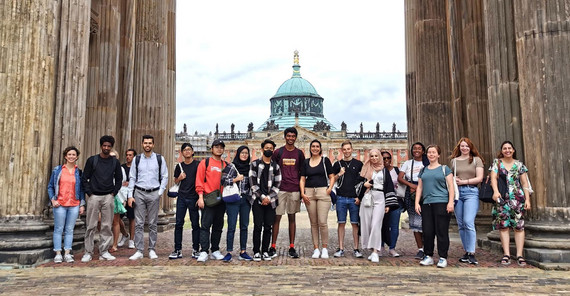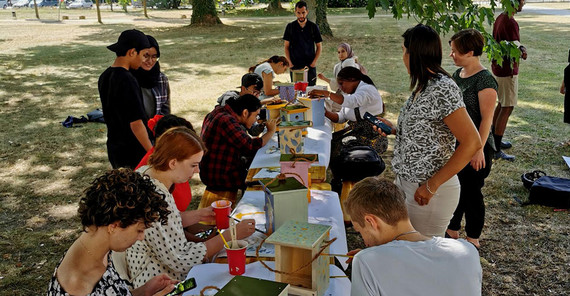The International Summer Campus Office (ISCO) designed the program to encourage participation from anyone interested in the Sustainable Development Goals. “There is already a diverse mix of registrations from people from all over the world: bachelor’s and master’s students, but also PhD students and other interested people, from their early 20s to their mid-40s. The degrees and backgrounds of the participants are equally diverse: from Architectural Engineering & Planning from Palestine, to Political Science from Canada, to Animal and Veterinary Sciences from Botswana,” says Adina Schröter from the ISCO.
The Sustainable Development Academy gives participants the opportunity to network and exchange ideas with each other, enabling them to hear about what is happening elsewhere in other countries. “Short-term programs are becoming more and more popular because they offer a lot of input and contact with experts in a compressed period of time. These kinds of programs also offer excellent opportunities for networking. This means that there is a very steep learning curve,” says organizer Adina Schröter.
The SDA presents Potsdam in all its diversity as a center of knowledge. In addition to the University of Potsdam, non-university research institutes, such as the Potsdam Institute for Climate Impact Research (PIK) and the Research Institute for Sustainability Helmholtz Centre Potsdam (RIFS), are also involved. Participants gain further insights into examples of participatory and ecological urban design during excursions to the Urban Forest Gardens in Berlin Britz and the emission-free Garden City in Potsdam-Drewitz. Both have been or are being scientifically accompanied as projects by the university. The ISCO team is very excited to welcome such renowned local actors for the SDA - after all, bringing these kinds of people together is what makes the summer school so practical.
Furthermore, SDA participants learn at the University’s Botanical Gardens about the conservation of endangered wild plants, endangered tropical plants, and the colonial pasts of this and other gardens. In addition, a vegetation ecologist will explain how, in areas that have burned down, forests that are more resilient against future forest fires and climate change are growing. “After so much input, the participants work on solving real problems in multidisciplinary teams with the help of the Design Thinking method taught by the Hasso Plattner Institute,” Schröter explains. “In the best-case scenario, they’ll be able to apply the insights and methods they’ve learned to develop creative approaches to achieve sustainability goals at the local level.”
Further information:
https://www.uni-potsdam.de/de/isc/kurse/summerschool/sda2023


